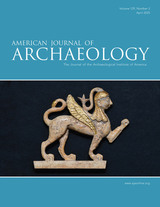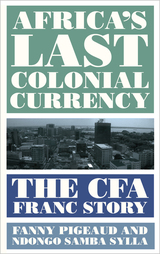
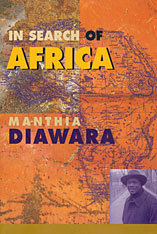
"There I was, standing alone, unable to cry as I said goodbye to Sidimé Laye, my best friend, and to the revolution that had opened the door of modernity for me--the revolution that had invented me." This book gives us the story of a quest for a childhood friend, for the past and present, and above all for an Africa that is struggling to find its future.
In 1996 Manthia Diawara, a distinguished professor of film and literature in New York City, returns to Guinea, thirty-two years after he and his family were expelled from the newly liberated country. He is beginning work on a documentary about Sékou Touré, the dictator who was Guinea's first post-independence leader. Despite the years that have gone by, Diawara expects to be welcomed as an insider, and is shocked to discover that he is not.
The Africa that Diawara finds is not the one on the verge of barbarism, as described in the Western press. Yet neither is it the Africa of his childhood, when the excitement of independence made everything seem possible for young Africans. His search for Sidimé Laye leads Diawara to profound meditations on Africa's culture. He suggests solutions that might overcome the stultifying legacy of colonialism and age-old social practices, yet that will mobilize indigenous strengths and energies.
In the face of Africa's dilemmas, Diawara accords an important role to the culture of the diaspora as well as to traditional music and literature--to James Brown, Miles Davis, and Salif Kéita, to Richard Wright, Spike Lee, and the ancient epics of the griots. And Diawara's journey enlightens us in the most disarming way with humor, conversations, and well-told tales.

Following tirailleurs sénégalais’ deployments in West Africa, Congo, Madagascar, North Africa, Syria-Lebanon, Vietnam, and Algeria from the 1880s to 1962, Militarizing Marriage historicizes how African servicemen advanced conjugal strategies with women at home and abroad. Sarah J. Zimmerman examines the evolution of women’s conjugal relationships with West African colonial soldiers to show how the sexuality, gender, and exploitation of women were fundamental to the violent colonial expansion and the everyday operation of colonial rule in modern French Empire.
These conjugal behaviors became military marital traditions that normalized the intimate manifestation of colonial power in social reproduction across the empire. Soldiers’ cross-colonial and interracial households formed at the intersection of race and sexuality outside the colonizer/colonized binary. Militarizing Marriage uses contemporary feminist scholarship on militarism and violence to portray how the subjugation of women was indispensable to military conquest and colonial rule.
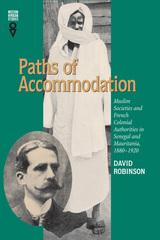
Between 1880 and 1920, Muslim Sufi orders became pillars of the colonial regimes and economies of Senegal and Mauritania. In Paths of Accommodation, David Robinson examines the ways in which the leaders of the orders negotiated relations with the Federation of French West Africa in order to preserve autonomy within the religious, social, and economic realms while abandoning the political sphere to their non-Muslim rulers.
This was a striking development because the local inhabitants had a strong sense of belonging to the Dar al-Islam, the “world of Islam” in which Muslims ruled themselves.
Drawing from a wide variety of archival, oral, and Arabic sources, Robinson describes the important roles played by Muslim merchants and the mulatto community of St. Louis, Senegal. He also examines the impact of the electoral institutions established by the Third Republic, and the French effort to develop a reputation as a “Muslim power”—a European imperial nation with a capacity for ruling over Islamic subjects.
By charting the similarities and differences of the trajectories followed by leading groups within the region as they responded to the colonial regimes, Robinson provides an understanding of the relationship between knowledge and power, the concepts of civil society and hegemony, and the transferability of symbolic, economic, and social capital.

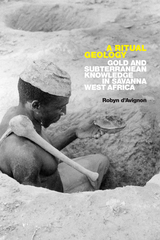
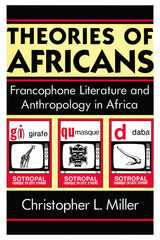
". . . a superb cross-disciplinary analysis."—Y. Mudimbe
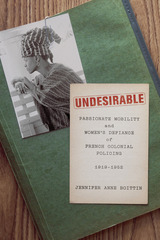
Examining little-known policing archives in France, Senegal, and Cambodia, Jennifer Anne Boittin unearths the stories of hundreds of women labeled “undesirable” by the French colonial police and society in the early twentieth century. These “undesirables” were often women traveling alone, women who were poor or ill, women of color, or women whose intimate lives were deemed unruly. To refute the label and be able to move freely, they spoke out or wrote impassioned letters: some emphasized their “undesirable” qualities to suggest that they needed the care and protection of the state to support their movements, while others used the empire’s own laws around Frenchness and mobility to challenge state or societal interference. Tacking between advocacy and supplication, these women summoned intimate details to move beyond, contest, or confound surveillance efforts, bringing to life a practice that Boittin terms “passionate mobility.” In considering how ordinary women pursued autonomy, security, companionship, or simply a better existence in the face of surveillance and control, Undesirable illuminates pressing contemporary issues of migration and violence.
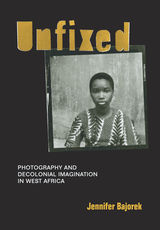
READERS
Browse our collection.
PUBLISHERS
See BiblioVault's publisher services.
STUDENT SERVICES
Files for college accessibility offices.
UChicago Accessibility Resources
home | accessibility | search | about | contact us
BiblioVault ® 2001 - 2025
The University of Chicago Press






